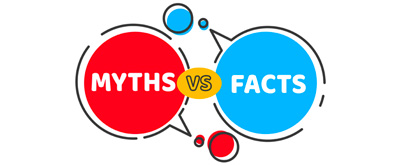News & Resources

Capital Hill, Payers, & the Future of Reimbursement in Healthcare
In this episode, Patrick Velliky, Chief External Affairs Officer at HaloMD, breaks down the latest trends in health care policy…
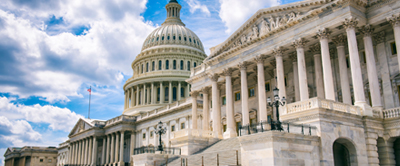
HaloMD Meets with U.S. Office of Management and Budget Ahead of the Release of the IDR Operations Final Rule
Last week, HaloMD spoke with the Office of Management and Budget (OMB) and federal agencies….

HaloMD Expands Executive Leadership to Further Strengthen Industry-Leading Data, Technology, and-

HaloMD is proud to support the Dr. Lorna Breen Heroes Foundation and its #ALLINforMentalHealth initiative-
advancing a national movement to expand mental health resources and end stigma for healthcare professionals…

HaloMD Expands Executive Team with Veteran Healthcare Leaders to Strengthen Fairness and Accountability in IDR
HaloMD, recognized as the nation’s leading authority in Independent Dispute Resolution (IDR) under the No Surprises Act…
The Myth vs. Fact: No Surprises Act Enforcement Act, published by Congressman Greg Murphy, M.D.’s office, addresses common misconceptions about proposed reforms to the No Surprises Act.
It highlights why stronger enforcement is needed to hold insurers accountable, ensure timely IDR payments…

HaloMD Vows to Defend Providers and the Federal IDR Framework Against Blue Cross Lawsuit
HaloMD, the nation’s prominent health‑technology company empowering healthcare providers…

Alla LaRoque speaks about Independent Dispute Resolution and The No Surprises Act
Alla’s talk highlighted the importance of data-driven strategies and collaborative efforts…

Becker's Webinar: Navigating Headwinds and Tailwinds in IDR under NSA
Learn how to navigate headwinds and tailwinds in Independent Dispute Resolution…
The Critical Role of Financial Sustainability in Preserving Healthcare
Rural hospitals are the backbone of many communities across the United States…
TMA's Legal Fight Under The No Surprises Act: What's Next for Providers?
At HaloMD, we’re closely tracking these developments…

How to Choose IDRE
Track how IDRE handles frivolous objection to…

Overview of Rules & Fact Sheets
Rules focused on specific protections and provisions…

Requirements Related to Surprise Billing
This document includes final rules under the No Surprises Act, which…

Independent Dispute Resolution Reports
The No Surprises Actand its implementing regulations…

Requirements Related to Surprise Billing; Part I
This document sets forth interim final rules implementing certain…

Requirements Related to Surprise Billing; Part II
This document sets forth interim final rules implementing certain…

What's going on with the No Surprises Act?
Here’s are recent updates to the No Surprises Act…

Federal Independent Dispute Resolution Process...
On April 15th, 2022, the Departments of Health and Human Services…

Prescription Drug and Health Care Spending
This document sets forth interim final rules implementing provisions…
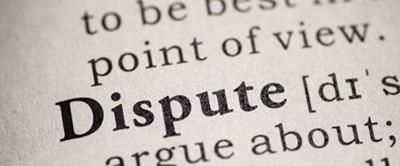
Providers: what to expect when a patient...
The “No Surprises” requirements are effective as of January 1…

Request for Information; Advanced Explanation...
This document is a request for information (RFI) to inform…
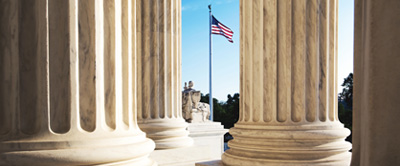
Independent Dispute Resolution Operations...
This document sets forth proposed rules related to certain provisions…

Air Ambulance NPRM – Fact Sheet
Air ambulance services frequently result in surprise medical bills due to…

HHS Announces Rule to Protect Consumers...
Today, the Biden-Harris Administration, through the U.S. Departments…
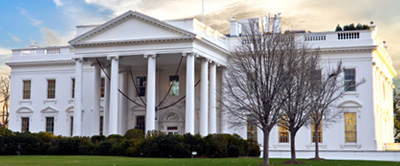
What You Need to Know about the Biden...
On July 1, 2021, the Biden-Harris Administration, through the…

Requirements Related to Surprise Billing...
On July 1, 2021, the Department of Health and Human Services…

Surprise Billing Disclaimer
This document sets forth interim final rules implementing certain…

Requirements Related to Air Ambulance...
This document sets forth proposed rules implementing certain…

What You Need to Know about the Biden...
On September 30, 2021, the Departments of Health and Human…

Prescription Drug and Health Care Spending...
On November 17, 2021, the Department of Health and Human…

Requirements Related to Surprise Billing; Part II...
On September 30, 2021, the Department of Health and Human…

Requirements Related To Surprise Billing: Final Rules
The rules finalize certain requirements under the July 2021…

No Surprises Act Independent Dispute Resolution...
In the Federal Independent Dispute Resolution (IDR)…

Notice of Independent Dispute Resolution...
This user guide contains instructions for completing the “Notice of IDR…

Certified Independent Dispute Resolution...
This job aid contains instructions for completing the Independent…

Independent Dispute Resolution Notice...
This job aid contains an overview of the Independent Dispute…

Notice of Independent Dispute Resolution...
This user guide provides an overview of the “Notice of IDR Initiation…

Requirements Related to Surprise Billing...
The Federal Independent Dispute Resolution (IDR) system (Federal…

Federal Independent Dispute Resolution Process...
On August 3, 2023, the U.S. District Court for the Eastern District of…

Faqs About Affordable Care Act And Consolidated...
Set out below are Frequently Asked Questions (FAQs) regarding…

FAQ About Consolidated Appropriations Act...
Set out below is a Frequently Asked Question (FAQ) regarding…

Faqs About Consolidated Appropriations Act...
Set out below are Frequently Asked Questions (FAQs) regarding…

Federal Independent Dispute Resolution (IDR)...
On August 3, 2023, the United States District Court for the Eastern…

Federal Independent Dispute Resolution (IDR)...
On August 3, 2023, the U.S. District Court for the Eastern District of…

Amendment To The Calendar Year 2023 Fee...
This guidance amends the previous “Calendar Year 2023 Fee…

Frequently Asked Questions Regarding the...
Questions Regarding IDR Entity Qualifications and the Application…

Federal Independent Dispute Resolution...
Provisions in this document related to the calculation of Qualifying…

IDR Timeline for Claims...
A qualified IDR item or service results in a charge for emergency…

Status Update - Federal IDR Resolution...
The Departments of Health and Human Services (HHS), Labor, and…

Federal IDR Process Change Healthcare...
IDR Process Change Healthcare Cybersecurity Incident Attestation

Standard Form: “Good Faith Estimate...
Under Section 2799B-6 of the Public Health Service Act and its…

Standard Notice: “Right to Receive...
Under Section 2799B-6 of the Public Health Service Act and its…

Guidance for Selected Dispute Resolution...
Effective January 1, 2022, The No Surprises Act (NSA) protects…
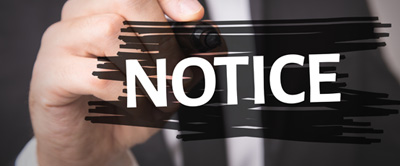
Standard Notice and Consent Documents Under...
The Department of Health and Human Services (HHS) developed…
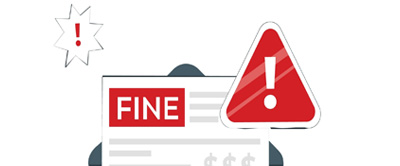
HaloMD Supports the No Surprises Act Enforcement Act
At HaloMD, we are dedicated to advocating for…

IDR Process Guidance for Disputing Parties...
The October 2021 interim final rules establish a Federal IDR…
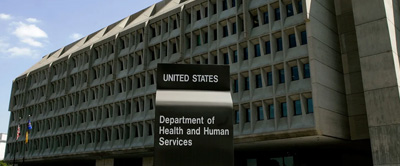
Texas judge rules in favor of doctors in...
The decision is expected to increase the number of provider claims…

Partial Report on the Independent Dispute Resolution Process
These reports highlighted the Departments’ plans to…

Surprise Billing Law: What’s Working and Not Working?
Check out the latest episode of the AAOS Bone Beat Advocacy podcast…

Payment Disputes Between Providers And Health Plans
The No Surprises Act created new protections against…
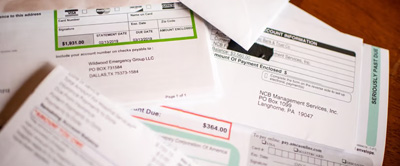
This latest report suggests patients are being...
The federal No Surprises Act “appears” to be effectively…

Federal Independent Dispute Resolution (IDR) Process Guidance...
This guidance document is effective upon publication and is consistent…

Initial Report on Independent Dispute Resolution (IDR)...
The No Surprises Act1 (NSA) and its implementing regulations establish…

Texas Medical Association Wins No Surprises Act Rule Court Case
A district court has ruled in favor of the Texas Medical Association…

Chart Regarding Applicability of the Federal...
The No Surprises Act establishes a Federal Independent…

No Surprises Act Prevents More than 9 Million...
A new survey from AHIP and the Blue Cross Blue Shield Association…

The No Surprises Act's Continuity of Care...
The No Surprises Act* introduced new requirements for…

Test Your Knowledge On The No Surprises Act
Take our interactive quiz.

Medical bills heading to dispute resolution far...
This article breaks down U.S. providers who initiated the most out-of-network…

With the evidence piling up, health economists...
At the same time, payers are seeing record breaking profits…

CMS recently released an amendment for the...
The administrative fee increased from $50 to $350 per party for…

Providers: What to Expect When a Patient Starts Payment...
The “No Surprises” requirements are effective…

Provider Requirements and Resources
The Consolidated Appropriations Act of…

Federal Independent Dispute Resolution...
This document finalizes rules related to the fees established by…

